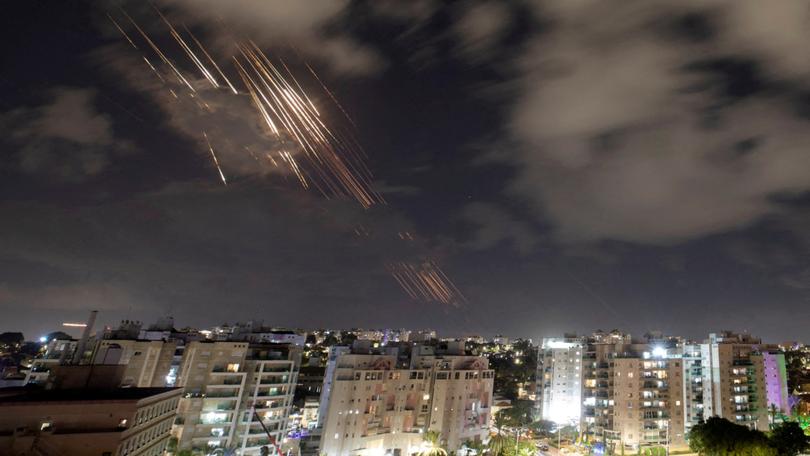One year on, the shadows of war and violence cloud each aspect of everyday life for Israelis
At a busy Tel Aviv entertainment district, diners spill into outdoor seating and clink glasses as music fills the air.

At a busy Tel Aviv entertainment district, diners spill into outdoor seating and clink glasses as music fills the air.
There’s laughter, there’s life.
But all around the patrons, staring down from lampposts and shop windows, are pictures of hostages held in Gaza, stark reminders that Israel is at war and forever scarred by the deadliest attack in its history.
Sign up to The Nightly's newsletters.
Get the first look at the digital newspaper, curated daily stories and breaking headlines delivered to your inbox.
By continuing you agree to our Terms and Privacy Policy.As Israel’s war with Hamas reaches its one-year mark, it can seem on the surface that much of life in the country has returned to normal. But with people still reeling from Hamas’ October 7 attack, hostages remaining in captivity and a new front of war with Hezbollah in the north, many Israelis feel depressed, despondent and angry as the war stretches into a second year.
Uncertainty over the future has cast a pall over virtually every part of daily life, even as people try to maintain a sense of normality.
“The conversation about the situation is always there,” said activist Zeev Engelmayer, whose daily postcard project featuring illustrations of hostages or Israel’s new reality has become a fixture at anti-war protests.
“It’s impossible to get away from it. It has entered into every vibration of our life.”
Hamas’ attack in which some 1200 people were killed and 250 kidnapped shattered Israelis’ sense of security and stability in their homeland.
Many have been rattled by the war’s evolution. Nearly 100 hostages remain in Gaza, with fewer than 70 believed to be alive. Israelis have experienced attacks — missiles from Iran and Hezbollah, explosive drones from Yemen, fatal shootings and stabbings — as the region braces for further escalation.
“I’m almost 80 — we grew up in this country with a feeling that we have short wars, and we win them quickly,” said Israeli historian Tom Segev, who described new feelings of utter hopelessness. “We’re not used to a long war.”
Israelis have long harboured a sense that their country, born of the Holocaust’s ashes and surviving a raft of regional threats, is a success story, Mr Segev said.
“I think that history is going backward,” he said of the past year. “Everything we have achieved on our way to becoming a normal state isn’t happening.”
Reminders are everywhere. At a Hebrew University graduation in Jerusalem, a large yellow ribbon was placed in front of the stage. A graduate who didn’t attend because his brother was killed in Gaza the previous day was honoured.
Parts of life have rebounded — beaches full of people, bustling cafes, concerts and sports back on schedules. But residents also check for the nearest bomb shelter, deal with school cancellations when violence flares up. Heartbreaking news arrives regularly, including the deaths of six hostages in August.
“As the war goes on and on and we can’t see the end, there’s also a type of very large worry over the future, and, for some, if there is even a future here,” Muli Segev said.
Cafe Otef seems like any of Tel Aviv’s coffee shops: patrons laugh and sip specialty coffee beside a playground; light rock music plays. But next to the sandwiches and cakes are chocolates made from the recipes of Dvir Karp, who was killed in the October 7 attack.
The cafe, named for the region next to the Gaza border, is run by residents of Re’im, one of the kibbutzes struck. It’s the second shop in the new chain, each aiming to support people of a southern Israeli town where lives were upended.
“We must take ourselves out of bed and continue to live and to work and to have the hope,” said Reut Karp, the cafe owner and Dvir’s ex-wife.
“Because without this hope, we don’t have anything.”
